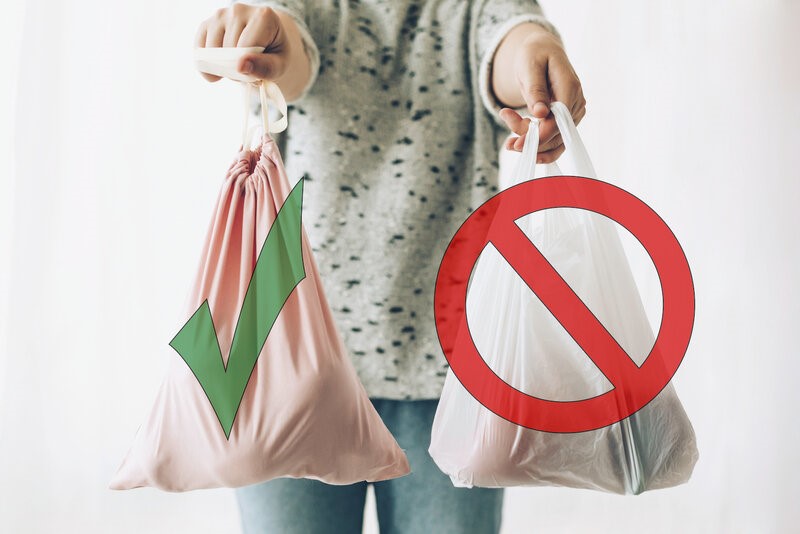Single Use Plastic Ban in the UAE

The United Arab Emirates have long established itself as a futuristic nation, aiming to set an example for the rest of the world in various endeavors. Along with many of the economic and technological advancements, the country has increasingly shown commitment to sustainability, recognizing the importance of climate change and environmental issues. The UAE has heavily invested in renewable energy projects including solar power initiatives and sustainable urban development. Growing and thriving under visionary leadership, the nation is focused on diversifying its economy, reducing its carbon footprint, and being more eco-conscious by implementing sustainable initiatives for the future.
Let’s dive in to learn more about this milestone move in the country’s sustainability efforts and how it will impact people in the long run.
Single Use Plastics: What’s The Big Deal?
Single-use plastics, which are essentially one-time or short-term-use plastic items, have infiltrated many aspects of our daily lives. Many of the most familiar items in our homes including plastic bags, water bottles, straws and packaging materials all fall under this category. While single-use plastics have made our lives easier, wrapping us all up in convenience, their environmental impact is quite significant.
Studies show that improper disposal of single-use plastics has been contributing to long-lasting environmental degradation, specifically by polluting the oceans and harming marine life. A 2023 interim study by the OECD noted that the usage of plastics is anticipated to expand in the coming years, resulting in a projected 50% rise in the release of macro-plastics into the environment by the year 2040. This would amount to 30 million tonnes annually, with 9 million tonnes entering aquatic environments. These numbers are not just alarming; they are a warning that tells the whole world to take action now.
In a country like the UAE, the reliance on single-use plastics is deeply ingrained. The convenience they offer has made them an integral part of daily life; from store-bought water bottles to convenient takeaway containers and utensils, these disposable wonders became woven into the very fabric of daily existence. As per The Environment Agency – Abu Dhabi, the UAE presently consumes 11 billion plastic bags annually, surpassing a thousand bags for each resident, which is approximately three times the global average. With the country seeking a balance between convenience and sustainability, efforts to reduce dependence on single-use plastics have been gaining traction for some time.
With increasing awareness, promoted by prompted global efforts to reduce single-use plastic consumption, the UAE government is now emphasizing the importance of sustainable alternatives and responsible waste management practices to mitigate the adverse effects of unscientific usage of plastic. Through the newly introduced plastic ban, the country is reaffirming its stance on sustainability and long-term vision for the future.
Plastic Ban: What to Expect?
It’s interesting to note that the current ban on single-use plastics focuses on taking out single-use plastic bags, which is one of the most common products in circulation. Since 2022, single-use plastic bags have been undergoing regulated use within the country.
In Abu Dhabi, the ban on single-use plastics went into effect starting June 1, 2022, while retailers in Dubai have been charging 25 fils per bag since July 1, 2022, to curb their usage. Sharjah has also been following Dubai’s path, charging a 25-fil tariff per single-use plastic bag since October 1, 2022. With the new resolution coming into effect, all Emirates will be banning single-use plastic bags moving forward.
As a result of this resolution, businesses throughout the country are now rethinking their products and packaging, adopting practices to lower the production and consumption of single-use plastics.
A few exceptions are given to this ban. According to the Ministry of Climate Change and Environment (MOCCAE), rolls of thin bags that meet the specifications set by the ministry, products that are clearly labeled for export or re-export, single-use bags and items made from materials recycled with the country and goods and materials exempted by any government body are not affected by this ban.
Adapting to the New Norm
So how are we, the people of the UAE going to adapt to this new norm? How are we going to go about our lives, shopping for the necessities? The easiest way to go about it is to make a habit of carrying your reusable shopping bags. Here are a few more suggestions to support these government initiatives and stay sustainable, without losing your style.
- Before buying any reusable bags, check for alternatives at home, such as using plastic bags from previous purchases. Use them until they wear out, as eco-friendly practices should not lead to increased consumption.
- Practice carrying your bags daily by keeping some folded in your handbags and car for easy access. Make it a habit to reduce reliance on single-use options.
- Invest in reusable bags over time. If you have the time and interest, consider creating your bags from old clothes through DIY projects or purchasing durable reusable bags.
- Opt for reusable bags made from natural and sturdy materials for extended use. Let’s just agree that fashionable totes made of natural fibers add an oomph to your shopping.
Banning single-use plastics in the UAE is a great step towards practical sustainability. As we grow more mindful of our actions and their impact on the world around us, we must adapt to changes, adopt new ideas, and do our bit for the common good. To learn more about sustainable living and plastic recycling in the UAE, check out more of our articles and resources.
Sources:
https://sustainabilitytribe.com/december/how-to-adapt-to-single-use-plastic-ban-in-the-uae/
